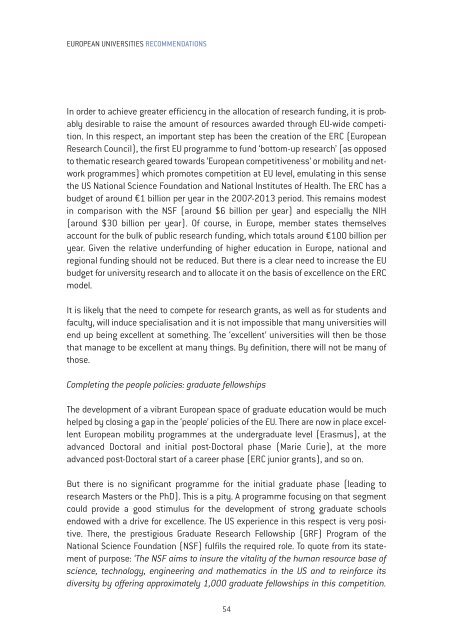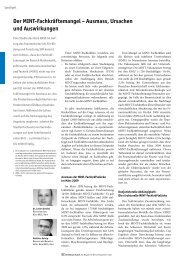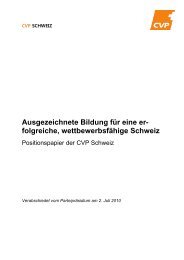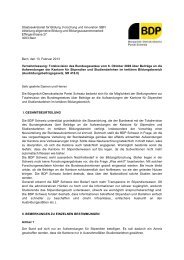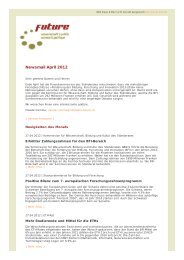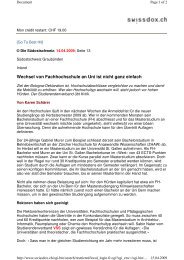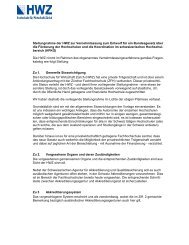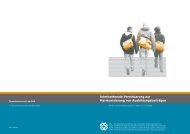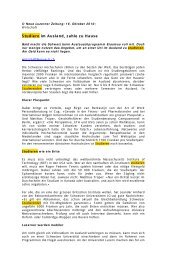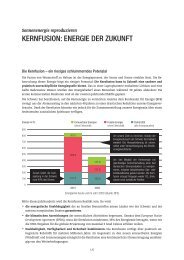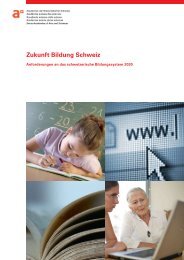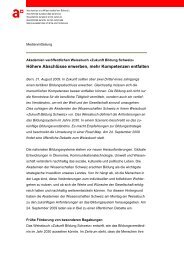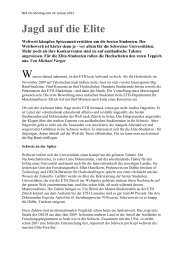Higher aspirations: an agenda for reforming European universities
Higher aspirations: an agenda for reforming European universities
Higher aspirations: an agenda for reforming European universities
Create successful ePaper yourself
Turn your PDF publications into a flip-book with our unique Google optimized e-Paper software.
EUROPEAN UNIVERSITIES RECOMMENDATIONS<br />
In order to achieve greater efficiency in the allocation of research funding, it is probably<br />
desirable to raise the amount of resources awarded through EU-wide competition.<br />
In this respect, <strong>an</strong> import<strong>an</strong>t step has been the creation of the ERC (Europe<strong>an</strong><br />
Research Council), the first EU programme to fund ‘bottom-up research’ (as opposed<br />
to thematic research geared towards ‘Europe<strong>an</strong> competitiveness’ or mobility <strong>an</strong>d network<br />
programmes) which promotes competition at EU level, emulating in this sense<br />
the US National Science Foundation <strong>an</strong>d National Institutes of Health. The ERC has a<br />
budget of around €1 billion per year in the 2007-2013 period. This remains modest<br />
in comparison with the NSF (around $6 billion per year) <strong>an</strong>d especially the NIH<br />
(around $30 billion per year). Of course, in Europe, member states themselves<br />
account <strong>for</strong> the bulk of public research funding, which totals around €100 billion per<br />
year. Given the relative underfunding of higher education in Europe, national <strong>an</strong>d<br />
regional funding should not be reduced. But there is a clear need to increase the EU<br />
budget <strong>for</strong> university research <strong>an</strong>d to allocate it on the basis of excellence on the ERC<br />
model.<br />
It is likely that the need to compete <strong>for</strong> research gr<strong>an</strong>ts, as well as <strong>for</strong> students <strong>an</strong>d<br />
faculty, will induce specialisation <strong>an</strong>d it is not impossible that m<strong>an</strong>y <strong>universities</strong> will<br />
end up being excellent at something. The ‘excellent’ <strong>universities</strong> will then be those<br />
that m<strong>an</strong>age to be excellent at m<strong>an</strong>y things. By definition, there will not be m<strong>an</strong>y of<br />
those.<br />
Completing the people policies: graduate fellowships<br />
The development of a vibr<strong>an</strong>t Europe<strong>an</strong> space of graduate education would be much<br />
helped by closing a gap in the ‘people’ policies of the EU. There are now in place excellent<br />
Europe<strong>an</strong> mobility programmes at the undergraduate level (Erasmus), at the<br />
adv<strong>an</strong>ced Doctoral <strong>an</strong>d initial post-Doctoral phase (Marie Curie), at the more<br />
adv<strong>an</strong>ced post-Doctoral start of a career phase (ERC junior gr<strong>an</strong>ts), <strong>an</strong>d so on.<br />
But there is no signific<strong>an</strong>t programme <strong>for</strong> the initial graduate phase (leading to<br />
research Masters or the PhD). This is a pity. A programme focusing on that segment<br />
could provide a good stimulus <strong>for</strong> the development of strong graduate schools<br />
endowed with a drive <strong>for</strong> excellence. The US experience in this respect is very positive.<br />
There, the prestigious Graduate Research Fellowship (GRF) Program of the<br />
National Science Foundation (NSF) fulfils the required role. To quote from its statement<br />
of purpose: ‘The NSF aims to insure the vitality of the hum<strong>an</strong> resource base of<br />
science, technology, engineering <strong>an</strong>d mathematics in the US <strong>an</strong>d to rein<strong>for</strong>ce its<br />
diversity by offering approximately 1,000 graduate fellowships in this competition.<br />
54


